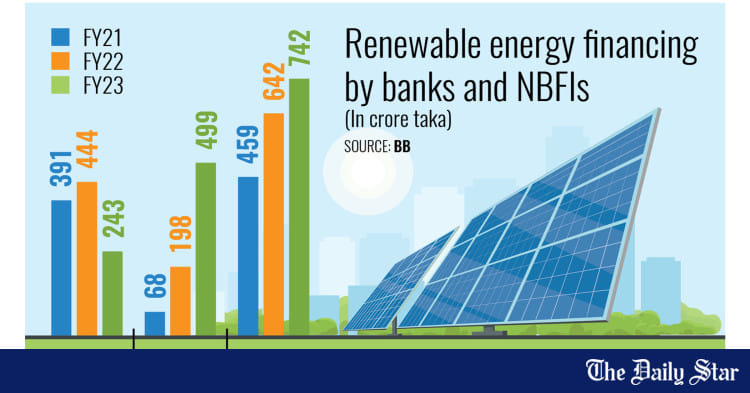Power cuts for long hours feared in summer
Emran Hossain 17 February, 2025, 23:39
File photo
Unpaid bills exceed Tk 38,373cr in 6 months
Bangladesh braces for a difficult summer, feared to be hotter than ever before, faced with the prospect of long hours of power cuts due to outstanding energy bills.
The overall outstanding bill to 121 power plants stood at Tk 38,373 crore until January 7, 2025 with almost half of the ongoing fiscal remaining ahead, mostly lurking with humid summer days.
At the end of the last fiscal, barely a month before a student-led uprising that toppled the Sheikh Hasina regime, the outstanding bill had totaled at Tk 44,338 crore.
‘Massive dues to power producers against the likelihood of electricity demand rising by at least 5 per cent present frightening scenario,’ said Shafiqul Alam, lead energy analyst, Bangladesh, the Institute for Energy Economics and Financial Analysis.
‘Even a meticulous plan may not save the day,’ he said
The day temperature reached 32.4 degrees Celsius on February 16, almost two weeks before winter is supposed to be officially over. Load shedding occurred almost every hour on Monday despite the power demand hovering between 10,000MW and 11,000MW. Bangladesh’s overall installed power generation capacity is over 27,884MW.
In less than a month, the power demand is forecasted to surge by 6,000MW to 7,000MW, potentially catching the Muslim-majority nation in a serious predicament in the month of Ramadan.
An estimated 5,000MW is considered summer cooling demand. Irrigation during summer also requires a supply of about 2,000MW.
Power, energy and mineral resources adviser Muhammad Fouzul Kabir Khan on Monday urged all not to lower AC temperature below 25C during summer in a bid to save up to 3,000MW to minimise the gap between demand and supply.
He said that power cuts would be equally distributed in villages and cities.
Frequent power cuts can bear serious food security consequences as the cultivation of Boro, the country’s main rice crop, overwhelmingly depends on lifting groundwater for irrigation.
Inability to release enough dollars rendered the 1,320MW coal-based Rampal power plant to shut down on February 14 while getting full supply from the 1,347MW Adani power plant remained uncertain due to non-payment of bills.
Bangladesh Power Development Board’s account of power plant-wise outstanding bills revealed that over 61 per cent of the outstanding bill or Tk 23,613 crore was owed as unpaid fuel bills.
Power purchase agreements require the BPDB, the sole buyer of all electricity generated, to supply energy, after entitling almost all power plants to capacity charge.
Coal-based power plants, however, import their fuel mostly on own arrangement and get paid by the BPDB.
In fuel bills, the BPDB owes more than TK 5,235 crore to coal-fired power plants, over Tk 5,942.86 crore to furnace oil-based power plants and Tk 12,023 crore to gas-based power plants.
Of the fuel bill dues to coal power plants, Tk 2,825 crore is owed to Adani Power, representing the highest amount of outstanding payment.
Adani halved its power generation in November last year citing non-payment of bills, months after it changed the law to exclusively supply power to Bangladesh after
Hasina had fled to India on August 5. Adani can now sell power in India. It reported machine problem after Bangladesh’s request to resume full power supply.
Gas, on the other hand, is entirely supplied under the government arrangement – 75 per cent from local gas fields and the rest imported as liquefied natural gas.
About 40 per cent of the import capacity remained unused ever since LNG was introduced in mid-2018 mainly because of its high expenses. The AL regime frequently hiked retail gas prices but did not help much amid a rapid depletion in the foreign currency reserve because of the import.
Bangladesh can supply close to 3,000MMCFD of gas in the best case scenario against the demand of 4,000MMCFD, facing the tough task of who to get the supply – power generation or industries.
Energy experts said that Bangladesh was in no position to increase its fuel supply to gas-based power plants, about half of which remain idle.
Furnace oil is imported by both the government and private power plants.
Of the overall power sector dues of nearly Tk 38,500 crore, Tk 23,283 crore was owed to privately owned power plants.
‘Our energy future could not be gloomier,’ Bangladesh Working Group on Ecology and Development member secretary Hasan Mehedi said.
Bangladesh loaned $2.1 billion from Jeddah-based International Islamic Trade Finance Corporation to meet its energy import needs in the current fiscal year.
In the previous fiscal year, Bangladesh took $1.4 billion from the same lender. The money was spent for oil imports.
Bangladesh also released bond worth Tk 12,000 crore to minimize its power sector debt.
The combined outstanding payment to Indian companies stood at Tk 6,823 crore.
Of the local power producers, Tk 3,120 crore was owed to the Summit Group, about TK 1,000 crore each to the United Group and the Orion Group, and Tk 841 crore to the Confidence Group.
Of the major base-load power plants, Tk 1,353 crore was owed to Payra power plant, Tk 576 crore to Rampal power
plant, Tk 160 crore to SS Power, Tk 216 crore to Matarbari power plant, Tk 477crore to Unique Meghnaghat Power and Tk 790 crore to Bhola power plant.
The overall outstanding bill also included Tk 545 crore owed to transmission authorities in Bangladesh and India.
At the end of last fiscal year, the BPDB could pay half of its dues with 78 per cent of the payment ending up in the pockets of 24 companies – all AL favorites.
During the Awami League regime for over 15 years, Bangladesh was steered on the path of aggressive expansion of fossil fuels, leading to the building of around 100 power plants, almost all of which were built without competitive bidding.
Frequent energy price hikes over the AL regime triggered the worst inflation in decades, turning Bangladesh to the International Monetary Fund for a $4.97 billion loan.















































